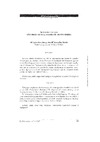Identificador persistente para citar o vincular este elemento:
https://accedacris.ulpgc.es/jspui/handle/10553/69592
| Campo DC | Valor | idioma |
|---|---|---|
| dc.contributor.author | Torrecillas Martín, Ana María | en_US |
| dc.contributor.author | Pérez Sanz, María Luisa | en_US |
| dc.date.accessioned | 2020-01-31T19:10:43Z | - |
| dc.date.available | 2020-01-31T19:10:43Z | - |
| dc.date.issued | 2002 | en_US |
| dc.identifier.issn | 0213-0610 | en_US |
| dc.identifier.other | Dialnet | - |
| dc.identifier.uri | https://accedacris.ulpgc.es/handle/10553/69592 | - |
| dc.description.abstract | En este artículo abordamos no sólo la importancia que tienen las agendas visuales para las personas con un Trastorno Generalizado del Desarrollo que no desarrollan el lenguaje oral, sino cómo son igual de importantes también para aquellas que sí lo desarrollan. Presentamos dos ejemplos de niños que tienen lenguaje oral, a los que las imágenes de las agendas les ayudan a anticipar para comunicar o comprender algo que va a ocurrir (una operación quirúrgica), o que se está desarrollando y surge un imprevisto (visita a Correos). | en_US |
| dc.description.abstract | Thjs paper emphasizes the importance of visual agendas not only in the life of people with a Generalized Disorder of Development who cannot develop verbal language, but also for the ones who develop that sort of ability. We present two examples of children who have verbal language. The images of these agendas help prepare them to communicate or understand an event which is going to occur (e.g. a surgical operation), or which is actually taking place but then something unexpected happens (a visit to the Post Office). | en_US |
| dc.language | spa | en_US |
| dc.relation.ispartof | El Guiniguada | en_US |
| dc.source | El Guiniguada [ISSN 0213-0610] (11), p. 181-187 | en_US |
| dc.subject | 61 Psicología | en_US |
| dc.subject | 6104 Psicopedagogía | en_US |
| dc.subject.other | Agenda | en_US |
| dc.subject.other | Imagen visual | en_US |
| dc.subject.other | Anticipación | en_US |
| dc.subject.other | Comprensión | en_US |
| dc.subject.other | Trastorno Generalizado del Desarrollo | en_US |
| dc.subject.other | Visual image | en_US |
| dc.subject.other | Anticipation | en_US |
| dc.subject.other | Comprehension | en_US |
| dc.subject.other | Generalized Disorder of Development | en_US |
| dc.title | Agendas visuales: "no hace falta la agenda, el me entiende" | en_US |
| dc.type | info:eu-repo/semantics/article | en_US |
| dc.type | Article | en_US |
| dc.identifier.url | http://dialnet.unirioja.es/servlet/articulo?codigo=764453 | - |
| dc.description.lastpage | 187 | - |
| dc.identifier.issue | 11 | - |
| dc.description.firstpage | 181 | - |
| dc.investigacion | Ciencias Sociales y Jurídicas | en_US |
| dc.type2 | Artículo | en_US |
| dc.contributor.authordialnetid | 193916 | - |
| dc.contributor.authordialnetid | No ID | - |
| dc.identifier.dialnet | 764453ARTREV | - |
| dc.utils.revision | Sí | en_US |
| dc.identifier.ulpgc | Sí | es |
| dc.description.sellofecyt | Sello FECYT | |
| dc.description.esci | ESCI | |
| dc.description.erihplus | ERIH PLUS | |
| item.grantfulltext | open | - |
| item.fulltext | Con texto completo | - |
| crisitem.author.fullName | Torrecillas Martín, Ana María | - |
| Colección: | Artículos | |
Visitas 5
227
actualizado el 10-ene-2026
Descargas
171
actualizado el 10-ene-2026
Google ScholarTM
Verifica
Comparte
Exporta metadatos
Los elementos en ULPGC accedaCRIS están protegidos por derechos de autor con todos los derechos reservados, a menos que se indique lo contrario.
